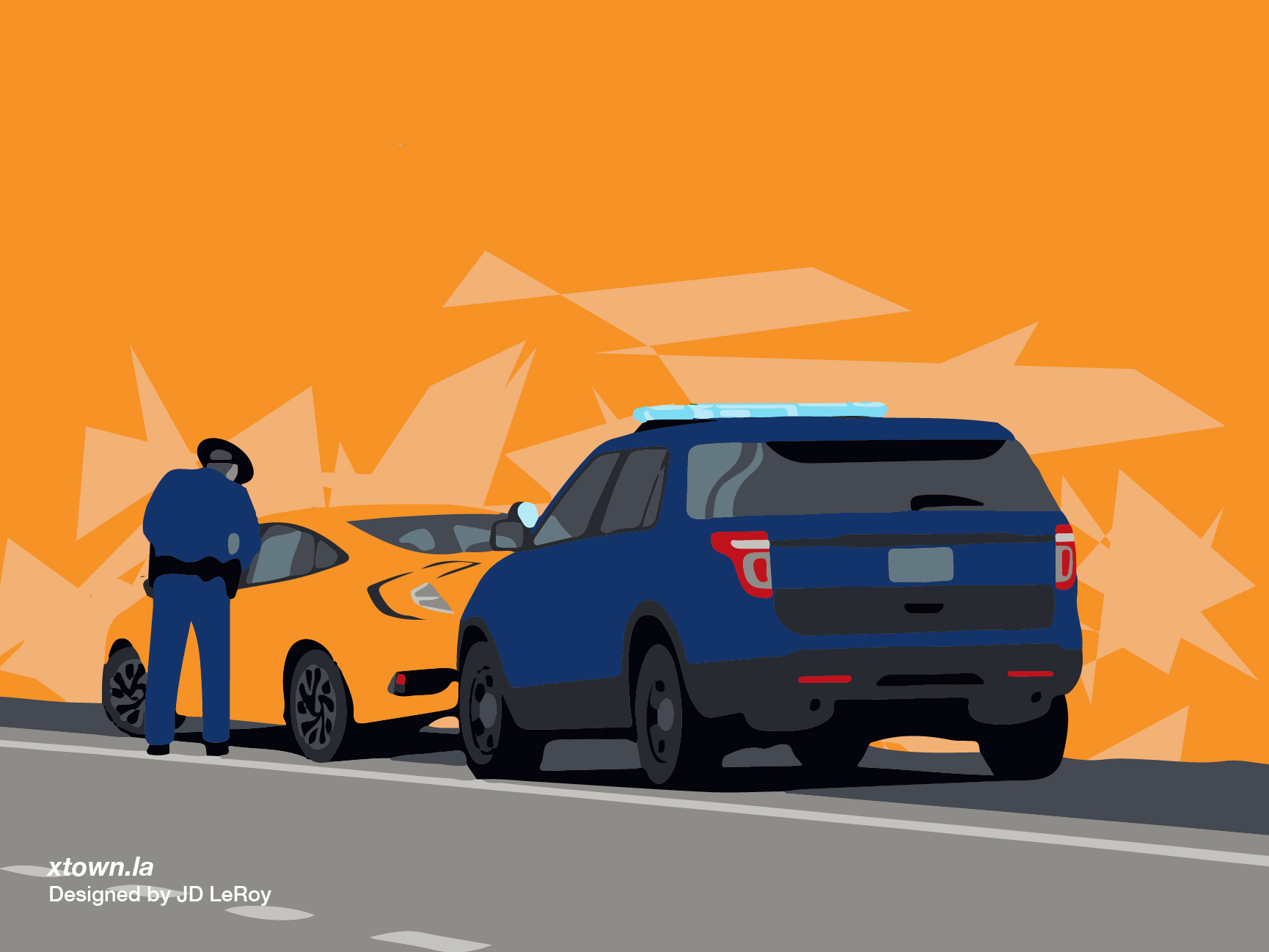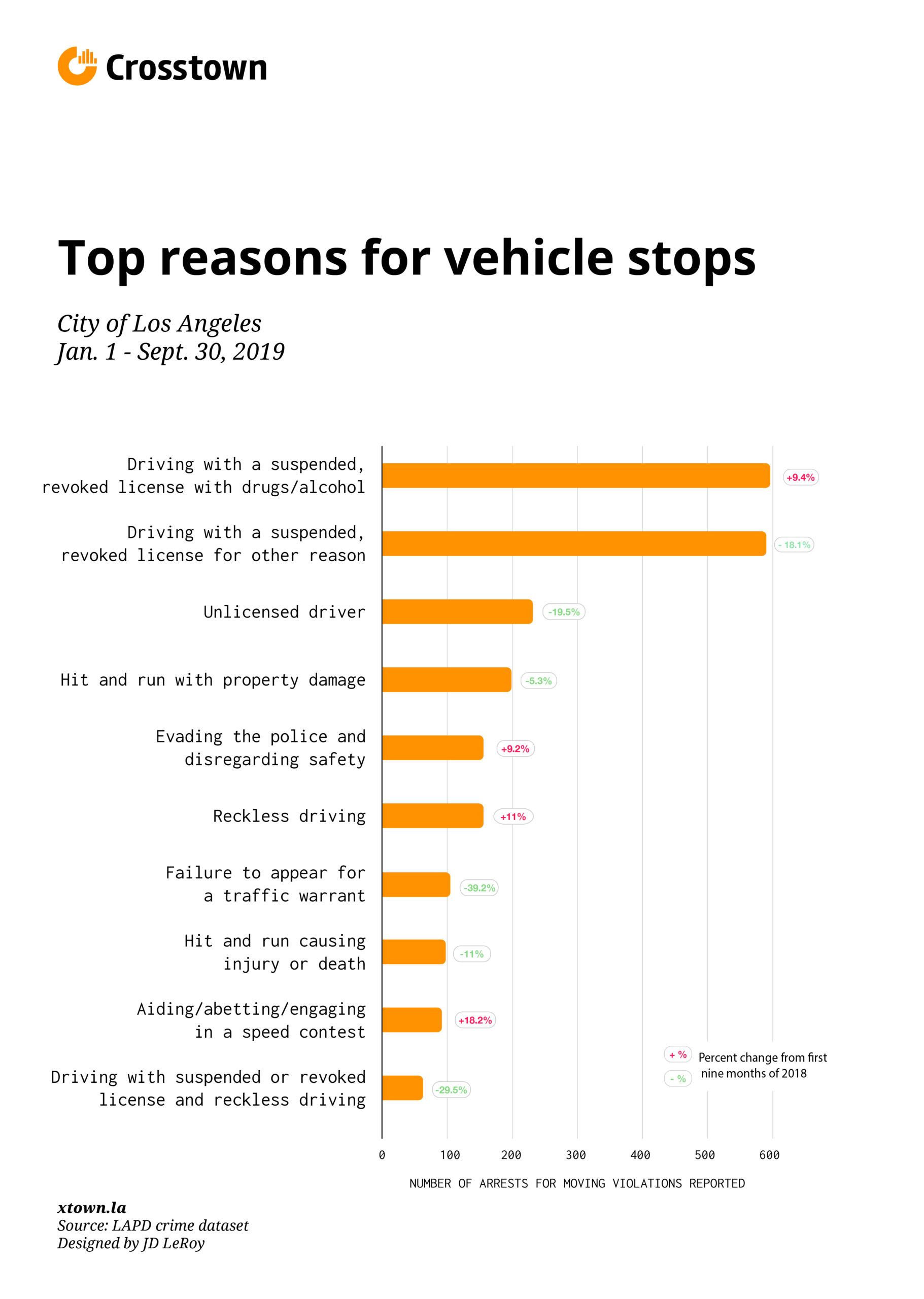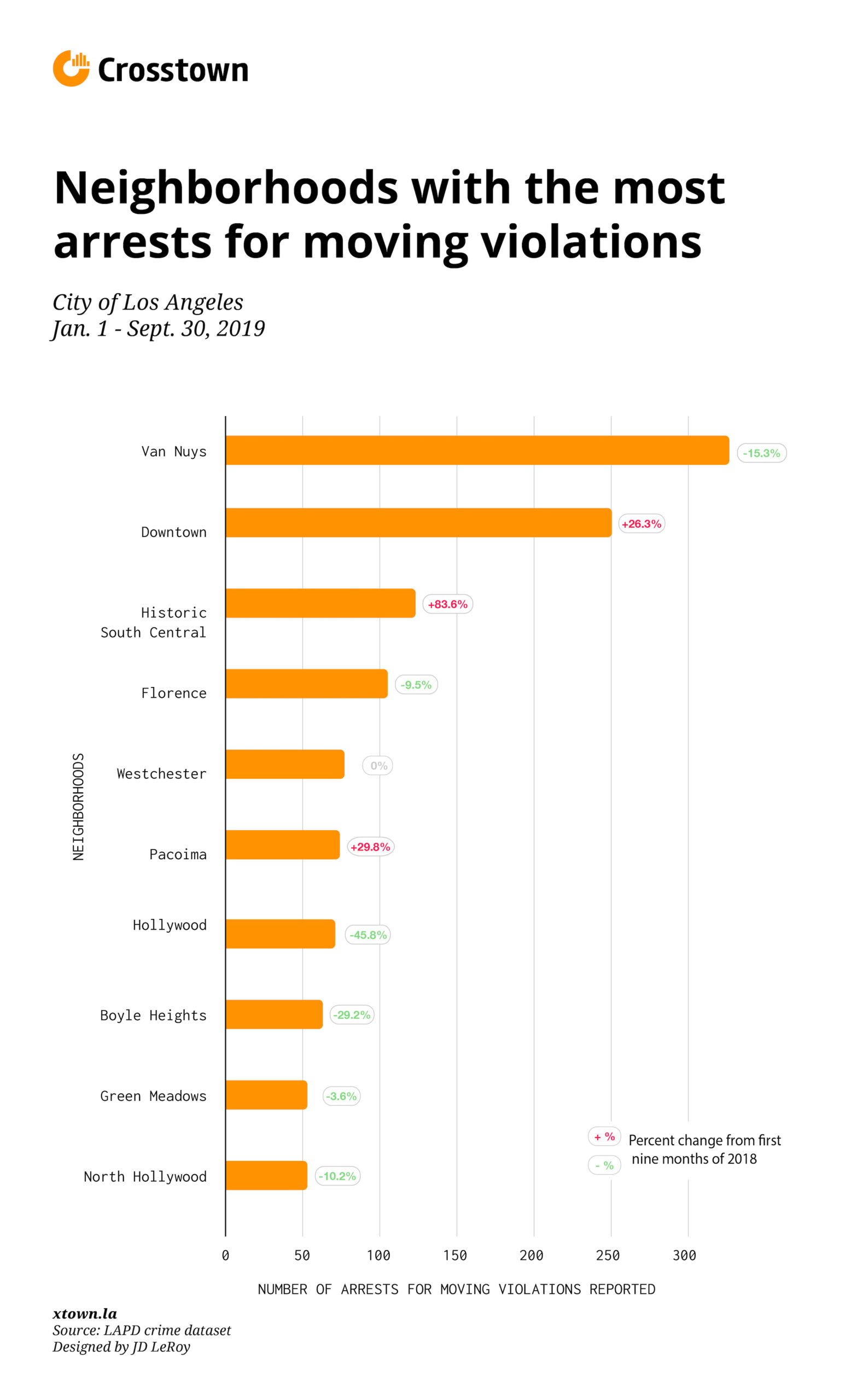Police are handing out fewer traffic tickets in LA

If you’re driving with a suspended or revoked license, don’t have a license at all, or are prone to any kind of reckless driving, you may want to hide your car keys from yourself instead of driving in the City of Los Angeles.
Those were the top reasons for the 2,553 people police arrested from Jan. 1 – Sept. 30, 2019, a decrease of 8.7% from the same time last year, according to LAPD data.
Almost half of those arrests were for driving with a suspended or revoked license.
Det. Meghan Aguilar, an LAPD spokesperson, said officers usually find out that this license information after the driver is pulled over for another moving violation like expired tags or a broken taillight.
If you enjoy street racing, think twice if you’re in the Valley. People pulled over for engaging in a speed contest increased 18.2% from the same time last year.
“[The] Valley task force does our street racing. They will tow cars and write tickets for that,” said Aguilar. “That’s probably where most of those tickets come from.”
Why? Streets in LA proper are typically too congested to engage in street racing.

Van Nuys, Downtown and Historic South-Central were the top three neighborhoods for moving violation arrests during the first nine months of this year. Hollywood and Boyle Heights saw significant decreases in these types of arrests by 46% and 29%, respectively.
Moving violation arrests in Historic South-Central spiked by 89% during the first nine months of this year compared to the same time last year. In 2017, arrests in this neighborhood decreased by 58%, but have shot back up since.
Aguilar said the spike in vehicle stops in Historic South-Central is determined by traffic accidents or a spike in traffic fatalities in the neighborhood.
“We have four traffic bureaus and their primary job is to reduce collisions. They’ll determine the areas that happens and direct enforcement to that area,” said Aguilar. “So if they are up, one thing to look at are vehicle fatalities in that same area.”

Failure to appear for a traffic warrant, driving with a suspended license for any reason and being an unlicensed driver were the top reasons drivers were arrested by the police from Jan. 1, 2010 – Dec. 31, 2018. Nearly 92.7% were misdemeanor arrests and 5.9% were felony arrests. People cited for an infraction, an offense not considered a crime and whose only penalty is a fine, made up 1.5% of arrests.
Out of the 50,445 moving violation arrests made between Jan. 1, 2010 – Dec. 31, 2018, people who are Hispanic made up 55% of those arrests and they make up nearly 49% of the population in the City of Los Angeles, according to the most recent American Community Survey. People who identified as other made up nearly 5%.
People who are white make up 28% of the population in the City of Los Angeles and account for 11% of arrests. Black or African Americans make up only 10% of the population, but accounted for 29% of moving violation arrests.
There were 549 arrests between Jan. 1, 2010 – Dec. 31, 2018 that involved people who admitted to officers when they were pulled over for a moving violation they knew they were driving with a suspended or revoked license. As for why these people incriminated themselves, who knows?
How we did it: We examined LAPD publicly available data on arrest data for the first nine months of 2019 compared to the same time period last year, as well as dating back to Jan. 1, 2010, when the data became publicly available. For neighborhood boundaries, we rely on the borders defined by the Los Angeles Times. Learn more about our data here.
LAPD data only reflect crimes that are reported to the department, not how many crimes actually occurred. In making our calculations, we rely on the data the LAPD makes publicly available. On occasion, LAPD may update past crime reports with new information, or recategorize past reports. Those revised reports do not always automatically become part of the public database.
Want to know how your neighborhood fares? Or simply just interested in our data? Email us at askus@xtown.la.






